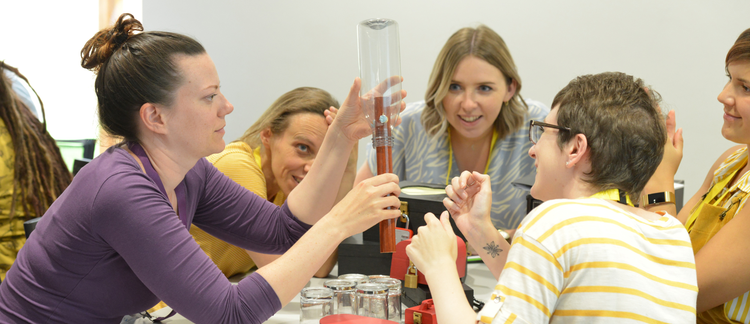Abstract
Roleplay has become a common learning practice across different educations in Denmark,among which Engineering and Healthcare. Building on the notion of play practices and moods (Karoff 2013, Toft 2019) and intra-action (Barad 2007), intended as a mutual entanglement of human and non-human actors, this study compares how engineering students from the program of Experience Technology (ET) and healthcare students from Occupational Therapy (OT) experience play during roleplay as a playful learning practice.
Ethnographic data were gathered during observations of ET students (during a course I have taught myself), while learning how to use ethnography in design practice, filming and observing each other while engaging with computer games. OT students were observed while learning how to perform the clinical dialogue, an ethnographic diagnostic practice, in which therapists observe patients to formulate a diagnosis and negotiate a therapy together with their patients.
Interestingly both groups of students gradually increased the rhythm of their play during class exercises, switching in an exceeding play practice (Karoff 2013). The students started from a sliding play practice, while engaging with the provided digital technologies and media (phones, slides and videos), which gave a reference for the students’ actions in relation to the learning goals and mutual intra-action. For ET students, digital technologies are native supports for their professional practice, while OT students experience a haptic dissonance (O’Reagan and Nöe 2001), while learning from visual material an embodied practice. However, both groups experienced genuine play through an exceeding play practice (Karoff 2013), which is defined by a euphoric mood, hence enabling the students to enjoy and express themselves through loud laughs, wide gestures, and mutual teasing. Exceeding provided opportunities for the students to engage in the freedom of play, building their affinity spaces (Gee 2017), defined as bubbles for the students to socialize, flirt, or simply regain room for fun in the classroom.
Keywords
intra-action, play practice, rhythm, play moods, playful learning, roleplay
How to Cite
Marchetti, E., (2021) “Exceeding and digital materiality in the classroom”, The Journal of Play in Adulthood 3(2), 113-130. doi: https://doi.org/10.5920/jpa.870
818
Views
202
Downloads
